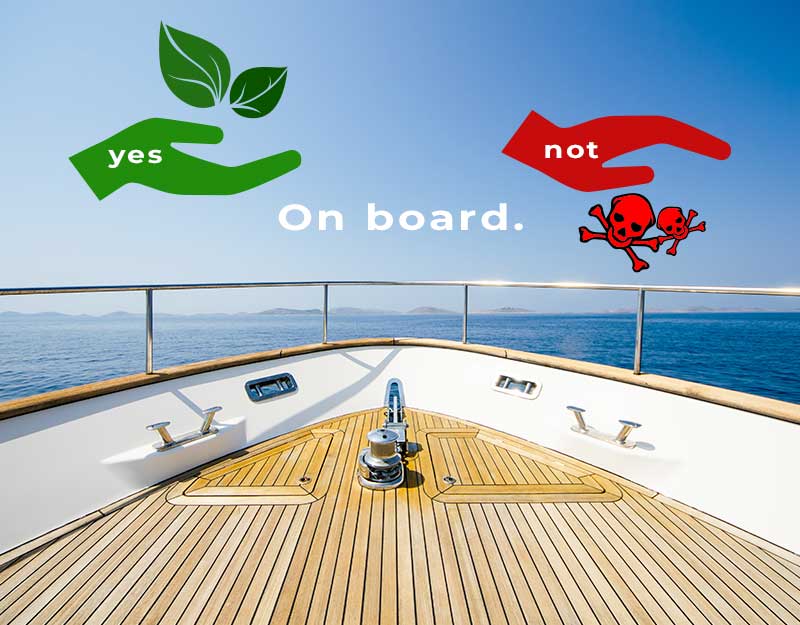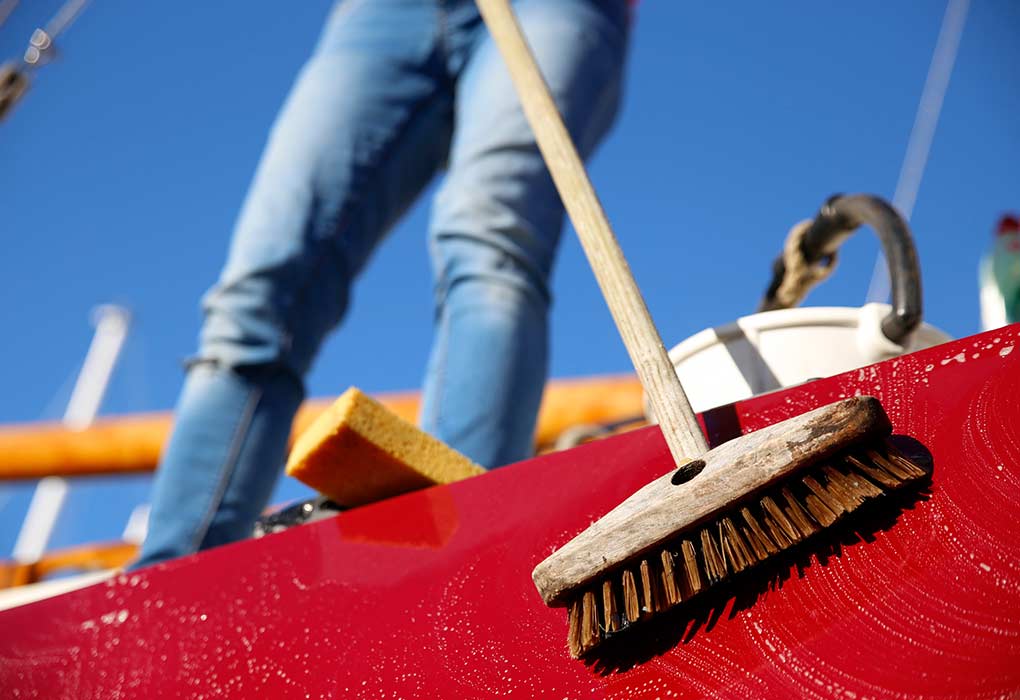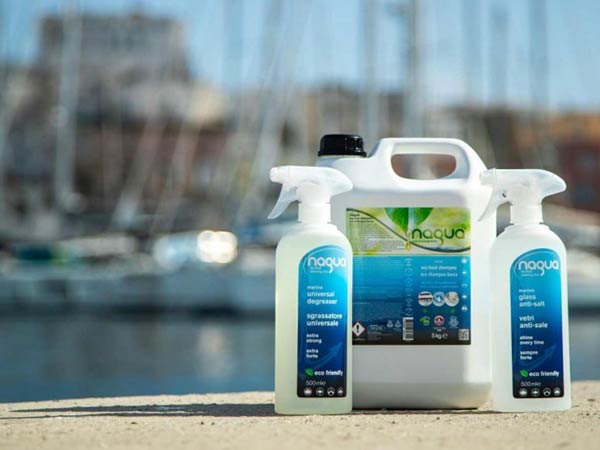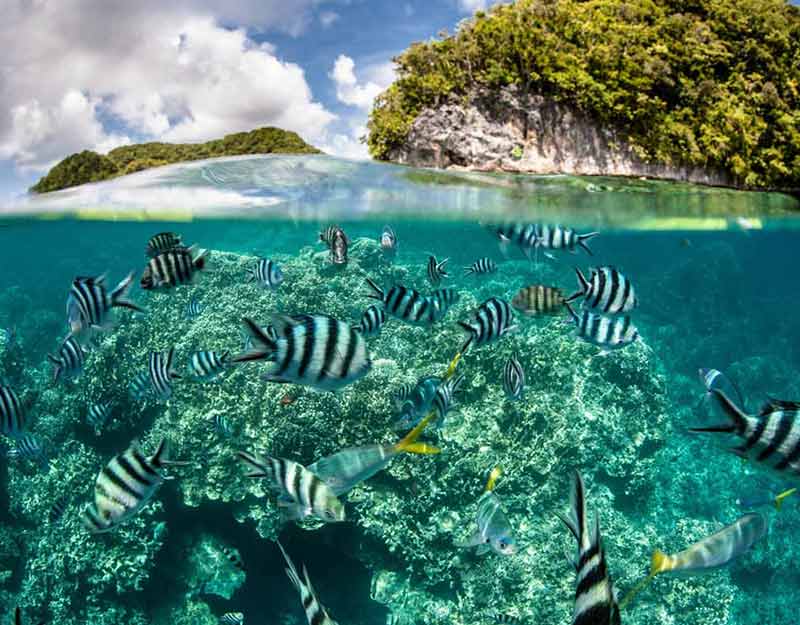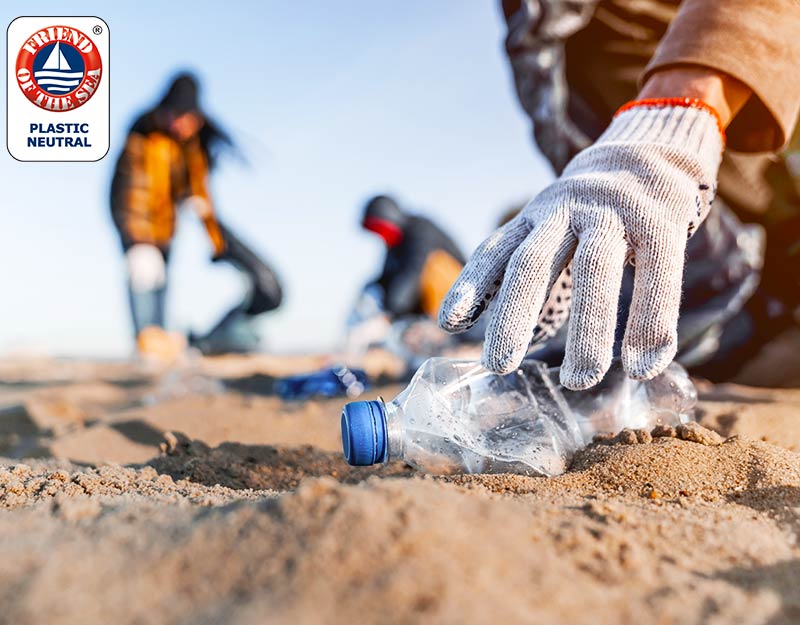
Nagua, the first company to join the “Plastic Offset” project
02/02/2023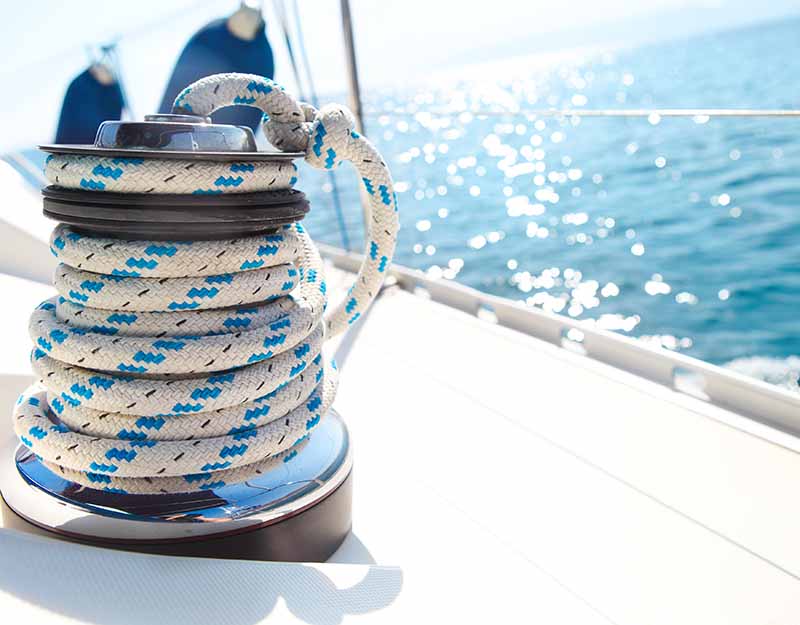
Board metals and rust. Here are the 5 best strategies to combat them
30/03/2023For sustainable shipboard living, one should avoid using traditional polluting cleaning products. In fact, most of the toxic substances that they contain are bad for the marine environment and also for our health.
Nowadays with the urgency to safeguard the environment and the oceans those who get on board a boat also do so for an ecological choice. That of living nature to the fullest, knowing it even more deeply and respecting it every day. After all, boaters have always been the first to become personally aware of the progressive degradation of the oceans. As well as of the resulting climate change that is one of the most tangible reflections of that pollution.
The ecological approach of the modern sailor takes many forms: people prefer sail propulsion rather than motor propulsion, install solar panels for clean energy, renounce the use of single-use plastic items on board, sort garbage, dispose of black and gray water properly, make scrupulous choices in the packaging of products embarked, and much more. In other words, one tends to sort one’s daily behaviors into “green” and “no green,” and with a little care, a little sacrifice and some renunciation, one tries to pollute as little as possible, minimizing the impact of one’s navigating.
Leggi anche: Eco-certification: 5 steps to recognize a sustainable product!
A wrong soap pollutes as much as the smog
According to research recently published in the scientific journal Science soaps, deodorants and perfumes would pollute as much as the smog. For this reason, to the boaters should not miss using more boat cleaning products: laundry detergents, degreasers, washing machine soaps, as well as shampoos, body cleansers, and products for their own well-being. Indeed, there is often little awareness of the disastrous consequences for the environment brought about by the daily use of highly polluting detergents. It may seem catastrophic, but an entire crew’s showering or the laundry with unsustainable detergents actually pollutes the sea as much as a busy street in a big city.
The main reason is that the traditional cleaning products that are often used on board contain high amounts of chemicals and pollutants. On the one side they seem to help us fight dirt, saltiness, and stains, and on the other side, once dispersed in the sea, they are responsible for the death of fish, cetaceans, animals, and sea birds, as well as water pollution as a result of the release of microplastics. A real nonsense for those who then lives in that water,
sails with it and spends his free time on it as a yachtsman.
What pollutants regular detergents contain
But let’s look specifically at what these pollutants are found in traditional boat cleaning products. A modern unsustainable detergent is a mixture of about 15 or more chemical compounds. However, these below are the most toxic and usually not even described on product labels.
- Phosphates: Phosphates are very useful for cleaning spaces because they counteract limescale and contain powerful chemicals that effectively attack dirt and grease. The problem is that once dissolved in water they become powerful stimulants of algae growth, which, if present in excessive quantities, can lead to the disappearance of fish species and cause other forms of environmental pollution.
- Surfactants: The surfactants added in detergents decrease the surface tension of water, making washing more effective. Particularly in the presence of grease, they stand between water and dirt and help to pull the latter off the surface. On the other side, however, they accumulate in the water giving rise to abundant and thick foams on the sea that prevent oxygenation of the water and limit biological activities.
- Colorants: Often products contain colorants with the simple aesthetic function of having a liquid of a pleasing color. In fact, chemicals in dyes represent one of the major causes of ocean pollution, as well as having lethal side effects on our organism.
- Phthalates: The phthalates are a family of chemical compounds that have always been used in the plastics industry. They allow the polymer molecules to flow over each other making the material soft and moldable even at low temperatures. We find them in detergents, shampoos and cleansers, as well as in hand soaps. They unfortunately have disastrous long-term consequences for any aquatic habitat.
- Enzymes: Many enzymes enhance the action of detergents and cleaning products. However, they are the main cause of many skin irritations including eczema, dermatitis and allergies.
As can be understood, indiscriminate use even on boats of such traditional detergents that contain one or more of the listed substances has consequences not only for the survival of marine flora and fauna, but also for our health. It is no coincidence that the World Health Organization considers traditional detergents an increasingly real and alarming danger.
Choose only “green” products for boat cleaning
How to avoid using toxic cleaners, then? When we purchase any detergent, soap, or degreaser for use on boats, we must also think about the consequences to the entire marine ecosystem. The suggestion is to read the labels of these products very carefully, helping you to decipher them with the use of the Biodizionario as well. And choose only those that have a composition of natural substances in the entire formula and, above all, certified by specific bodies for environmental safeguard. Perhaps even products with a responsible life cycle, including environmentally friendly packaging.
Even in these small gestures concerning the preservation of our environment we can see the true sailor, who is aware, attentive and a friend of nature.
Good wind
The Nagua team
